- Home
- Bryce Courtenay
Brother Fish
Brother Fish Read online
Brother Fish
BOOKS BY BRYCE COURTENAY
The Power of One
Tandia
The Night Country
Jessica
Smoky Joe’s Cafe
Four Fires
Matthew Flinders’ Cat
Brother Fish
THE AUSTRALIAN TRILOGY
The Potato Factory
Tommo & Hawk
Solomon’s Song
BRYCE
COURTENAY
Brother Fish
McArthur
&
Company
First published in Canada in 2005 by
McArthur & Company
322 King St., W, Suite 402
Toronto, ON
M5V 1J2
www.mcarthur-co.com
Copyright © 2005 Bryce Courtenay
All rights reserved. Without limiting the rights under copyright reserved above, no part of this publication may be reproduced, stored in or introduced into a retrieval system, or transmitted, in any prior written permission of both the copyright owner and the above publisher of this book.
Library and Archives Canada Cataloguing in Publication
Courtenay, Bryce, 1933-
Brother Fish / Bryce Courtenay.
ISBN 1-55278-536-X
I. Title.
PR9619.3.C598B76 2005 823 C2005-904787-9
eISBN 978-1-77087-037-6
Jacket design by Nikki Townsend
For Owen Denmeade
and
Geoff and Phyllis Pike
Also, all the veterans of the Korean War
Table of Contents
Book One
Chapter One
Chapter Two
Chapter Three
Chapter Four
Chapter Five
Chapter Six
Chapter Seven
Chapter Eight
Chapter Nine
Chapter Ten
Chapter Eleven
Book Two
Chapter Twelve
Chapter Thirteen
Chapter Fourteen
Chapter Fifteen
Chapter Sixteen
Chapter Seventeen
Chapter Eighteen
Chapter Nineteen
Chapter Twenty
Chapter Twenty-one
Chapter Twenty-two
Chapter Twenty-three
Acknowledgements
List of Sources
BOOK
ONE
CHAPTER ONE
The Anzac Hotel – Launceston, 1986
I’m standing at the Gallipoli Bar waiting to meet Jimmy Oldcorn in the Anzac Hotel in Launceston. Jimmy and I meet in this particular pub on the 9th of August every year regardless of where we happen to be in the world. It is a tradition that goes back a long, long way to a cold and bitter war most Australians have forgotten. Thirty-four years ago I invited Jimmy home with me from Korea – for he was a Yank with no place in his native country he could remember with sufficient affection to wish to return.
Jimmy and I had been taken prisoners of war and had spent almost two years in various establishments initially under the North Koreans, and subsequently the Chinese. We’d both been wounded, though not in the same battle, and each had a leg badly broken when we’d been captured. Even the best part of two years into captivity, with the bones knitted, our bad legs still gave us a fair amount of pain. Close to the time of the cease-fire and armistice, we’d been released in a prisoner-of-war exchange with the Chinese and were subsequently taken to US 121 Medical Evacuation Hospital in Seoul for assessment of our injuries. Here they gave us the good news and the bad news. The bad was that, in both our cases, they would need to break the crookedly knitted leg and reset it. The good news, for me anyway, was that the comfort bag the Red Cross gave me included a large bar of chocolate.
Compared to the bad, the good news must sound pretty trivial. But it just goes to show, even in extremely emotional moments, life often comes down to trivial things. This simple gift of chocolate was a symbol of great importance to me. Asians don’t eat chocolate – it is not a taste they’ve acquired. On the other hand, for a poor Australian kid growing up in the Great Depression and the lean years that immediately followed, chocolate was the ultimate luxury. As a prisoner of war it had come to represent all that was good about our way of life. When the pain and the beatings became really bad I’d dream of tasting chocolate just one more time before I died, although I knew the likelihood of this happening was extremely remote. A prisoner of war with a broken leg and multiple wounds had virtually no chance of surviving the primitive conditions of a North Korean field hospital. When we did survive the various field hospitals, the POW camp that followed promised to finish us off. Now, almost miraculously, we’d made it! Here I was, the personal possessor of a bar of milk chocolate and safely ensconced in a military hospital bed, a fair-dinkum bed with springs that squeaked, all sixty-five pounds of skin and bone concealed beneath crispy white sheets.
With trembling hands I tore away the top quarter of the outer wrapper, peeled the silver foil from a corner of the chocolate bar then carefully broke off an individual square. Then, postponing the grand moment when it would contact my tongue so as to better anticipate the experience, I examined the brand name pressed into the tiny portion. Its calligraphy, so precise and assured, belonged to a world where sanity and order always prevailed. At last the warmth from my finger and thumb began to transfer into the tiny square and it started to soften, so I placed the chocolate in my mouth, closing my eyes to savour its exquisite creaminess. The initial flavour was everything I’d dreamed about. Then, after a few seconds the richness hit my stomach. It was as if I had been punched in the solar plexus, causing me to double over in the bed so that my head slammed against my knees. This was followed by an irrepressible surge which rose from my lower regions and threw me backwards. I started to retch when, just as suddenly, my torso was hurled forward, sending a spray of watery vomit over the snowy sheets. The unfamiliar chocolate had been too much for a stomach accustomed to a diet of boiled millet and thin rice gruel. I had come full circle, back to an experience that began on the night I was taken prisoner by the North Koreans.
On the night of my capture I had been dragged unconscious from the snow into a partially demolished hut. I awoke in great pain, and pleaded with my captors to fashion some sort of splint to support my shattered leg. While they nodded their heads acknowledging that they could see my leg was broken, they seemed unconcerned. They spoke no English and seemed more interested in going through my pack than attending to my condition. Soon enough one of them came across a small bar of army-issue chocolate, and after removing the wrapper seemed not to know what to do next. Thinking it might be a good way to ingratiate myself I attempted a smile and indicated, by bringing my fingers to my mouth and making a chewing then swallowing motion, that he should eat it. The soldier broke off a square and placed it into his mouth. Instead of allowing the chocolate to melt on his tongue, he did as I had indicated and chewed, then immediately swallowed. I waited for the look of delight to cross his face. To the enormous amusement of the others, his face screwed into a grimace of disgust and he began to spit furiously. Bent double and clutching his stomach he started to heave, and then vomited over his canvas boots. His comrades, delighted at the practical joke I’d played on him, were convulsed with laughter, congratulating me with their looks and smiles. When the soldier finally recovered, I could see he was furious. I had caused him to lose face in front of his mates. He advanced on me and, without warning, snatched up his rifle and smashed the butt into the side of my jaw, breaking several teeth. I had just discovered the hard way that chocolate wasn’t an Asian thing.
From the Evacuation Hospital in
Seoul, after the briefest of goodbyes, Jimmy was evacuated to the Tokyo Army Hospital while I was to go to the British Commonwealth Hospital in Kure, the port we’d departed from when we’d first embarked for Korea.
At Iwakuni Airport the Red Cross had put on a posh meal for the Commonwealth prisoners before we were to board an ambulance train to the military hospital. As demonstrated by the chocolate episode, my stomach wasn’t yet ready for such a generous gesture. All I could eat was a couple of forkfuls of vegies, using my paper napkin to wipe the glaze of butter off the baby carrots, although, as a special treat, I took a chance with two dessertspoons of mixed-fruit jelly. Yet, despite not having the stomach for the meal, to this day I remember the entire menu. This first Western meal I’d encountered in two years gave me additional assurance that I was back in safe hands. In my imagination I ate every scrap, slowly, savouring every morsel.
Cream of Tomato Soup
Roast Chicken and Bread Sauce
New Potatoes and Parsley Sauce
Fresh Vegetables
Mixed Fruit Jelly and Whipped Cream
Cheese, Bread and Butter
I also recall thinking that roast chicken was something you only got at Christmas, and just for a moment my mind, which had long since given up counting days and months and only recognised seasons, became confused, and I thought this must be Christmas Day, the only day of the year almost every Australian tasted roast chicken.
After three and a half months in hospital the authorities took the opportunity to bum a ride for a dozen or so of the Australian walking wounded, myself included, on a chartered Qantas flight taking some of the military top brass back to Melbourne.
It was decided that I would do a further three months’ convalescence in Australia before being discharged from the army. With my left leg in plaster up to the hip I was still very much dependent on my crutches, and it had taken a fair bit of persuasion on my part to convince the army doctors to let me go home. Crutches notwithstanding, I was going back to the island – the war was over for me. Before leaving Japan I’d been given two years’ back pay and a couple of medals to wear on Anzac Day. It was more money than I’d ever possessed in my life, and I got scared just thinking about it.
The arrangement was that I was to remain in Melbourne to await Jimmy’s plane from Tokyo due in two days’ time. How he’d persuaded the US military to let him do his convalescence in Australia I’ll never know, except that Jimmy could persuade most people to do most things.
My chartered Qantas flight had been the first plane into Melbourne that morning and, after I’d taken the airport bus into town where the driver dropped me off at a boarding house in St Kilda Road, one that he personally recommended and that turned out to be owned by his auntie, I took the tram into the city and bought myself some civilian clobber. The usual stuff – sports jacket, a couple of pairs of daks, one brown and one grey, three pairs of socks, though I only had need for one sock in the meantime, two white shirts and a decent pair of shoes, though again, only one shoe being useful in my present predicament. Then I bought a cheap suitcase to carry my army uniform and slouch hat.
I was still sixty pounds under my normal weight and I’d been careful to buy everything miles too big, with the result that I looked an awful fright. I’d put on a few pounds in the hospital but was still in a pretty emaciated condition and reckon I could easily have been mistaken for a dero who had been shaved head and beard to get rid of the lice, given a good scrub down and then issued with a new set of one-size-fits-all charity handouts from St Vincent de Paul.
I don’t suppose it mattered much, I knew nobody in Melbourne. After all the fussing about in the hospital and the military debrief, where they took us through the propaganda to which we’d been subjected by the Chinese, I was happy enough to be left on my own. I spent the remainder of the morning taking several short tram trips for a bit of a squiz at the big city. Around one o’clock I got off the tram at Flinders Street Station and bought a meat pie, which the bloke behind the pie cart smothered in tomato sauce without being asked to. I guess an Australian who didn’t want tomato sauce on his meat pie was unimaginable. Earlier in the day, crossing the bridge in the tram going down St Kilda Road, I’d seen several ducks gliding on the Yarra, so I bought half a loaf of bread and, with the pie and the bread stuffed inside my shirt, I headed towards the Botanic Gardens across the bridge. I only just made it; the pie in a brown paper bag was hot as buggery and left a blister on my skin, a small price to pay for your first meat pie in three years. I found a bench beside the river, ate my pie, fed the ducks with the bread, watched the lazy brown Yarra go by, basked in the sunshine and soaked up the calm and peaceful world around me. Calm was something I hadn’t enjoyed a lot of for what seemed to me to be a very long time.
Melbourne in the summer of 1953 was just trying to get its head around hosting the Olympic Games in three years’ time and the city fathers were busy painting and repairing buildings, knocking down the odd one, and planting a few extra street trees to give the metropolis a veneer of sophistication when the world came to visit. A row of a dozen or more cranes stretched along a street near Flinders Street Station.
Though I wasn’t much of a judge of big cities, four days before I was due to leave Japan I’d been given a forty-eight-hour leave pass and took the train to Tokyo to meet up with Jimmy, who I hadn’t seen since we’d left the hospital in Seoul. We’d chatted on the phone a couple of times and sent the odd postcard to each other but, having been together cheek and jowl through hell and back for just under two years, I was naturally anxious to see how he was getting along. One thing was certain, Melbourne was no Tokyo – that much I can tell you.
With both of us on crutches, Jimmy and I had gone to the Ginza strip where we took in several of the honky-tonk, neon-and-noise girlie bars, beer halls and strip-tease joints. They all seemed much the same, the Japanese girls wearing too much lipstick, their short, stocky legs in PX nylons and high heels, hitching up their skirts to show a provocative glimpse of suspender as they hoisted themselves onto the bar stool beside you. ‘You buy me drink, soldier.’ The pitch, like Johnnie Walker whisky, never varied.
Later we headed for Shinjuku, the red light district. It was awash with beer and bourbon and the dull roar of humans trying to have a good time. The bars were seemingly endless, most with tricked-up American names such as the Golden Horseshoe and Alabama Annie. I especially remember two, Hound Dog Hotel and the Memphis Maiden, though in the latter instance I imagine very few of your actual maidens ever stepped through its sliding bamboo doors. All of them existed for a single purpose: to attract the homesick GI with a pocketful of Yankee dollars and a determination to get laid before going home to Mom’s apple pie and the waiting arms of a Mary-Lou, a bobby-soxer when he’d left and now a lovely young woman waiting glory-boxed and teary-eyed to become a bride.
After almost two years in the grim surroundings of a POW camp the glamour and glitter of Tokyo’s Ginza strip and the blatant sexuality of Shinjuku seemed totally surreal. The fact that we were drinking alcohol while pumped full of antibiotics no doubt added to the bizarre experience. It was all becoming too much: the blazing lights, flashing neons in pinks and reds, electric blues and acid-sharp whites, the noise, especially the noise, the painted faces of the girls with their hard, obsidian eyes, began to physically overwhelm me. It felt as though I was being bashed over the skull with a baseball bat and I could feel my heart beating like a voodoo drum. I was suddenly possessed by an almost irresistible desire to screw up my eyes, hold my hands cupped to my ears, squat down onto my haunches and go into a blithering funk. My senses were completely overloaded and I knew I was very close to breaking down. When Jimmy turned to me and said, ‘Brother Fish, let’s get the hell outta here, I can’t take no more, man,’ I was damn near tears and, in my haste to put my beer down I bumped the base of the glass I was holding against the edge of the bar spilling what remained into my lap.
Now, less than a week later, here I was in Melbour
ne where the pubs shut at six o’clock when the city settled into an almost sepulchral quietness. It seemed entirely appropriate that the dozens of construction cranes piercing the pre-Olympic skyline gave the impression of a city playing host to a convocation of bishops, their arms stretching out to bless the buildings kneeling beneath them. I was to learn later that they were there to remove the Victorian verandahs from many of the buildings, a modification that the city fathers believed would improve the city in preparation for the Olympics. Melbourne was tarting itself up, determined to show the world it was not some colonial backwater, but a modern and vibrant city.
I’d decided to buy myself a slap-up dinner on my first night home as a quasi-civilian and so I took the short tram ride up Swanston Street, then hobbled up Bourke on my crutches. It was just a little after six-thirty but the city already had its shutters down. I eventually discovered a restaurant but found myself suddenly reluctant to enter. Looking through one of the windows I could see the small square tables covered with snowy tablecloths and matching serviettes, each folded into a Pope’s bonnet. A single red rose in a small cutglass vase was the only colour on the tables. Gleaming cutlery lay pristine, softly glowing as if presented for display in a jewellery-shop window, and the wine glasses, two at every place setting, sparkled as they reflected the light from an enormous crystal chandelier that dominated the centre of the room.
I’d never tasted wine, it wasn’t the sort of thing a bloke drank in those days. Maybe if you were taking a girl out and wanted to impress the pants off her you’d order a bottle of Porphyry Pearl, but you’d drink beer and she’d drink that and you’d hope it had the desired effect. It was the wineglasses more than anything that told me this was the wrong place for my sort. It hadn’t been long since I’d frantically grabbed at rice gruel from a communal dish hoping to get two fistfuls into my mouth before it had all disappeared. I’d dreamed of one day sitting at a table with a clean cloth, cutlery and a plate of my own, but slap-up dinner notwithstanding, this didn’t appear to be the sort of restaurant I’d have instinctively chosen to eat my prodigal son’s return dinner. The menu stuck into a little frame in the window left me further confused.

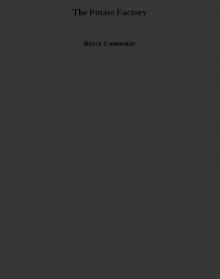 The Potato Factory
The Potato Factory The Power of One
The Power of One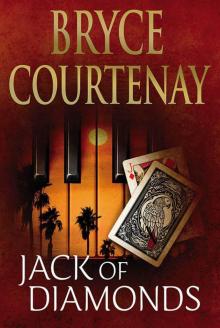 Jack of Diamonds
Jack of Diamonds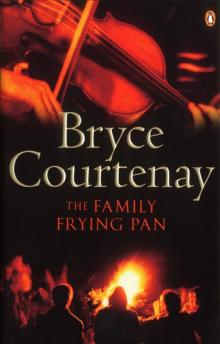 The Family Frying Pan
The Family Frying Pan April Fool's Day
April Fool's Day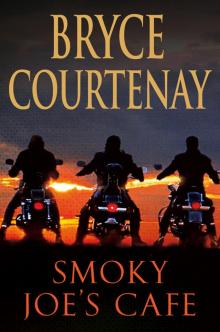 Smoky Joe's Cafe
Smoky Joe's Cafe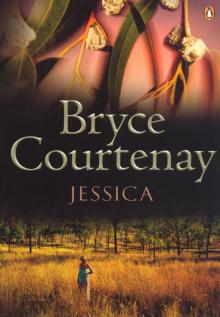 Jessica
Jessica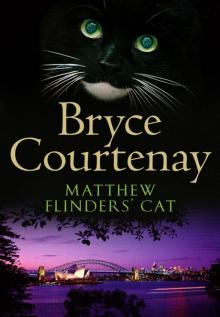 Matthew Flinders' Cat
Matthew Flinders' Cat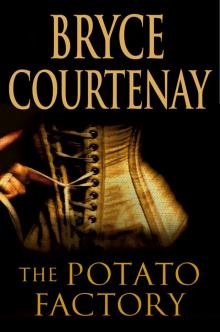 Potato Factory
Potato Factory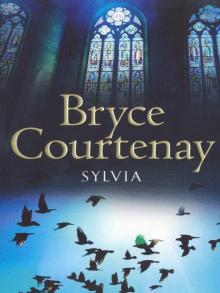 Sylvia
Sylvia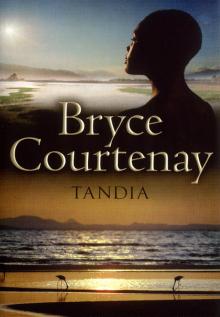 Tandia
Tandia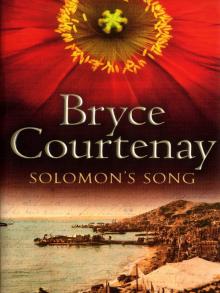 Solomon's Song
Solomon's Song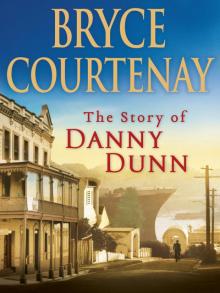 The Story of Danny Dunn
The Story of Danny Dunn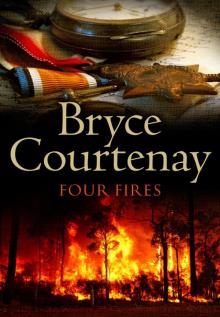 Four Fires
Four Fires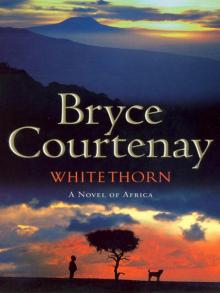 Whitethorn
Whitethorn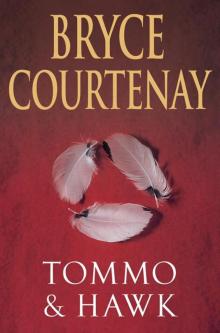 Tommo and Hawk
Tommo and Hawk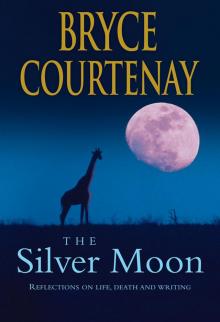 The Silver Moon
The Silver Moon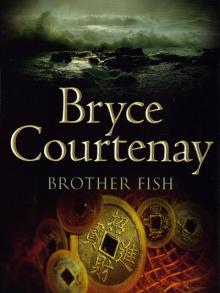 Brother Fish
Brother Fish FORTUNE COOKIE
FORTUNE COOKIE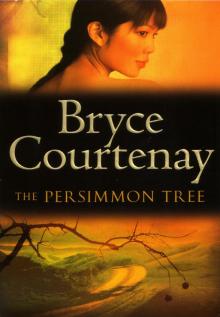 The Persimmon Tree
The Persimmon Tree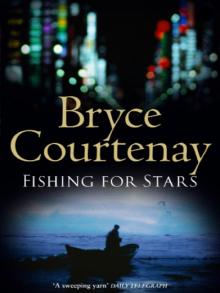 Fishing for Stars
Fishing for Stars